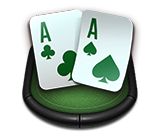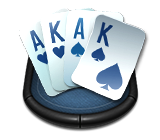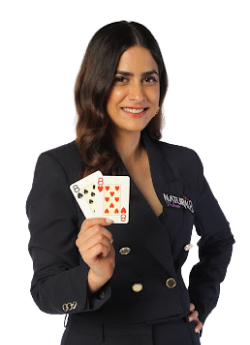
Poker has come a long way from being perceived as a mere card game played in smoky backrooms and glamorous casinos. Over the past few decades, it has evolved into a globally recognized mind sport that demands strategic thinking, emotional control, and mathematical prowess. As more players and enthusiasts embrace the game, poker is now seen as a test of skill rather than just a game of chance. This shift in perception has fueled a revolution, positioning poker alongside traditional mind sports like chess and bridge.
The Rise of Poker as a Mind Sport
The journey of poker's transformation into a mind sport has been fueled by several key factors. One of the most significant milestones was its recognition by the International Mind Sports Association (IMSA), which placed poker in the same category as strategic games that require deep analytical skills. With the advent of online platforms, millions of players now engage in poker tournaments that test their cognitive abilities and strategic planning in real-time.
Televised events such as the World Series of Poker (WSOP) and the rise of poker celebrities have also played a crucial role in popularizing the game as a skill-based competition. Players like Daniel Negreanu and Phil Ivey have demonstrated how poker involves advanced game theory, psychology, and decision-making under pressure. This has helped dispel the notion that poker is purely a game of luck.
Key Skills Required to Master Poker
Success in poker requires a unique blend of skills that are applicable beyond the felt. Here are some of the most important cognitive abilities that poker enhances:
Strategic Thinking: Winning at poker involves creating long-term strategies based on probability, hand ranges, and opponent tendencies.
Emotional Control: The ability to manage emotions, such as frustration or excitement, is crucial to making rational decisions under pressure.
Risk Management: Poker teaches players how to evaluate risk and reward, a skill that applies to both financial and life decisions.
Observation and Adaptability: Paying attention to opponents behavior and adjusting strategies accordingly is vital for success.
Mathematical Aptitude: Calculating odds, pot equity, and expected value are fundamental aspects of poker strategy.
Poker and Cognitive Development
Studies have shown that playing poker regularly can have a positive impact on cognitive abilities. Engaging in the game enhances memory, concentration, and logical reasoning. Poker also helps improve decision-making skills by encouraging players to think critically and consider various possibilities before acting. These benefits have made poker a valuable tool in educational settings, with some schools and universities incorporating poker into their curriculums to teach strategic thinking and probability.
The Role of Online Platforms in Poker's Growth
The digital revolution has played a pivotal role in the expansion of poker as a mind sport. Online poker platforms, such as Natural8 India, have made the game accessible to players of all skill levels across India. With a variety of formats, including cash games, sit & go tournaments, and multi-table tournaments, online poker offers opportunities for players to refine their skills and compete at a professional level.
Moreover, platforms like Natural8 India provide valuable resources such as hand history analysis, training tools, and tutorials that help players develop a deeper understanding of the game. The convenience of playing poker online has led to a surge in its popularity, further cementing its status as a legitimate mind sport.
The Future of Poker as a Mind Sport
As poker continues to gain mainstream acceptance, its future looks brighter than ever. More countries are recognizing the skill-based nature of the game, leading to better regulation and greater acceptance within sporting communities. The introduction of AI and data analytics in poker has also revolutionized the way players approach the game, providing new insights and strategies that were previously unavailable.
With the continued efforts of organizations, players, and online platforms, poker is set to reach new heights as a globally recognized mind sport. Whether played recreationally or professionally, poker offers endless opportunities for intellectual growth and strategic mastery.
Conclusion
The transformation of poker into a mind sport has been nothing short of remarkable. Its recognition as a game of skill, coupled with advancements in technology and widespread accessibility, has elevated poker to new levels of popularity and respect. As more players continue to embrace the strategic depth of the game, poker's influence as a cognitive challenge will only continue to grow. Whether you're a seasoned pro or a newcomer, poker offers a unique and rewarding way to sharpen your mind and test your strategic abilities.


.webp)














